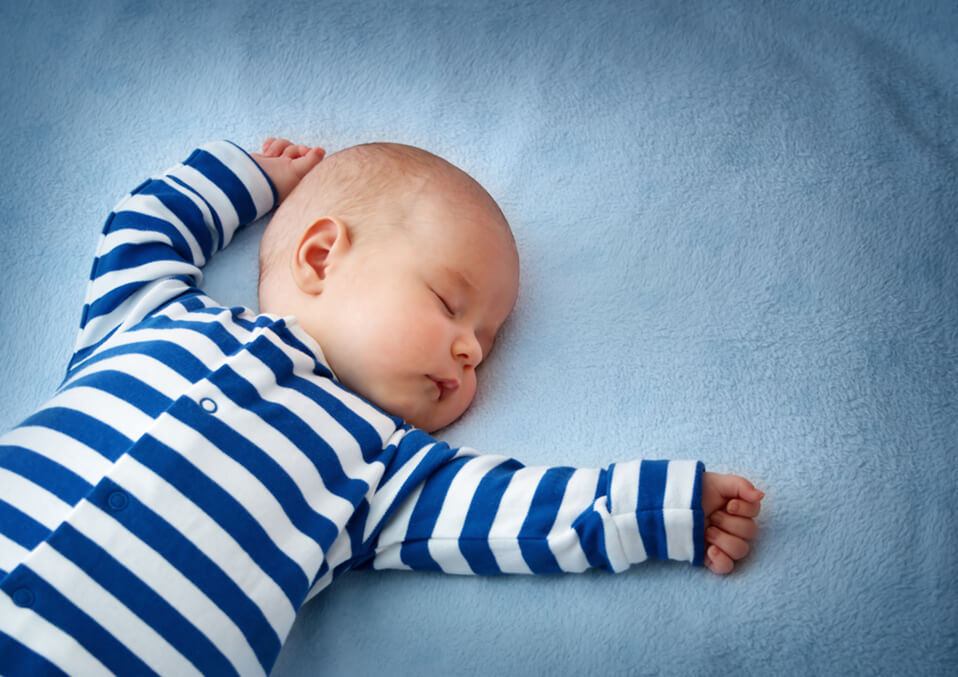
Have you woken in the middle of the night because your baby is crying? It keeps on happening every night then you started to feel concerned knowing that your baby is not getting enough night sleep, although experts say that sleep disruptions are common among babies’ early stages of life.
Worrying comes when a baby’s sleep disorder is going far beyond normal. It can leave babies feeling tired and even parents do. It can also have mental and emotional bad effects too.
Melatonin supplements are common sleeping aid for adults. Those who have sleeping issues even take melatonin supplements. But how about babies? Is it safe for them?
A background

Melatonin is a hormone that is naturally produced by the pea-sized pineal gland of the brain. It aims to regulate a person’s sleep cycle. When it gets dark, the brain produces more of these hormones making humans and animals feel sleepy. During the day, this hormone is inactive.
When normal melatonin levels are disrupted, the circadian rhythm of the body is damaged. That will lead to a person’s difficulty sleeping or feeling sleepy when it is time for bedtime. This is when melatonin supplements are needed. It helps to normalize the body’s circadian rhythm to improve the quality of sleep.
The most powerful factor that affects the melatonin level is light. The pineal gland adjusts the release of melatonin to the light as perceived by the eyes. It increases when it is dark and dormant when there is light. Artificial lights, especially those coming from screens of mobile gadgets suppress its release. That will be bad for anyone trying to get sleep, especially on babies and kids.
Is it safe for babies?

In everything that you give your baby, safety is of the primary concern. While considered to be effective and posing a very low risk of side effects in adults, melatonin can only be used by babies under the prescription and administration of a health professional. Dosages should be given with care and precision.
Melatonin supplement is available in different forms – capsules, tablets, gummies, and liquid. The liquid form is highly advisable for babies and kids since other forms can cause increased choking hazards. Dosage is not one size, fits all. Humans normally produce 0.3 mg of melatonin every day, and administering the same amount of kids and babies is considered safe. Physicians will recommend the exact dosage base on your baby’s specific case and medical history.
The side effects

Melatonin has been proven to improve babies’ quality of sleep. But to date, long-term effects are still unknown because of limited research and studies related to the issue.
There are some mild effects of melatonin when administered to babies. Some babies experience bedwetting, morning drowsiness, and dizziness. There are also cases of abdominal pain and diarrhea have also been reported. It may also lead to sleepiness throughout the day. To date, it has not been approved by the FDA as a pharmaceutical but only as a food supplement.
Tips to help babies fall asleep
If you don’t want to use melatonin or other sleeping aids on your babies, you can try some natural ways to help babies sleep better at night. These are proven effective but are also safe.
If possible, set a regular bedtime for babies. It will help to train babies’ body clock. They can sense signals in the environment.
Prepare the baby to sleep. A pre-bedtime routine can help like applying lotion or soothing oils and singing lullabies.
Help the baby associate the bed with sleeping. Any other activities, like playing on the bed make them think otherwise. Thus, putting them to sleep on the bed may become hard.
Put the baby to bed when he is drowsy but still awake. Allow the baby enough time to settle down. He might fuss or cry until finding a comfortable position.
Babies’ eyes are more sensitive to light than that of an adult. Turn off the lights and other sources of light at night time. Studies show that exposure to light, especially to artificial light reduces melatonin levels in the body by 90%. So, it is advisable to shut off television sets and electronic screens an hour before sleep since it decreases the body’s melatonin level and increases cortisol, the body’s natural alarm system. It will be good not only for the babies but for grown-ups as well.
Use dim lights before the baby’s bedtime. Coming in from a bright room before sleeping can also hamper the ability to fall asleep.
Avoid turning on bright light when the baby wakes up in the middle of the night. It also suppresses the melatonin level which makes them hard getting back to sleep. In case he needs to be cared for and fed, use dim lights. Talk in a low, soft voice and maintain relaxed and calm movements. This will teach your baby that it is time for sleep and not playtime.
Keep the bedroom temperature cool. It can help babies fall asleep comfortably. Slightly cool rooms are better. The ideal room temperature is from 60°F to 67°F.
Let your little munchkins get plenty of sunlight during the day. This can help them fall asleep faster and longer at night.
Using a pacifier can also be a trick to help the baby to fall asleep. Researches even conclude that babies using pacifiers when they sleep are of lesser risk of sudden infant death syndrome (SIDs).
When to seek help
Although it is just but normal for babies to have abnormal sleeping patterns, parents should also be watchful for alarming signals that might cause babies to wake up at night. A poor nighttime sleep that lasts for two weeks needs medical consultation. Waking at night from a peaceful sleep can be a sign of pain some baby diseases that need to be checked and treated with urgency. Lack of sleep with poor appetite and digestive orders can also cause alarm. Do not conclude or self medicate. Bring your baby to a physician for proper guidance.
Remember that it takes time to understand a baby’s sleeping habits. Understand a baby’s preference – is he a night owl or an early bird? Soon, he can adjust to routines and natural sleep patterns. Do not force him to sleep just because you think he needs to. Caring for a baby is a challenging task, and making them sleep can be one of these challenges. But these several methods are proven effective in helping your baby get that good night zzzzzs.
Read also:
- Top-Notch Funny Baby Shower Gift Ideas
- Zantac Concerns: Is It Harmless For Babies?
- Spoiled Breast Milk And How to Deal With it


